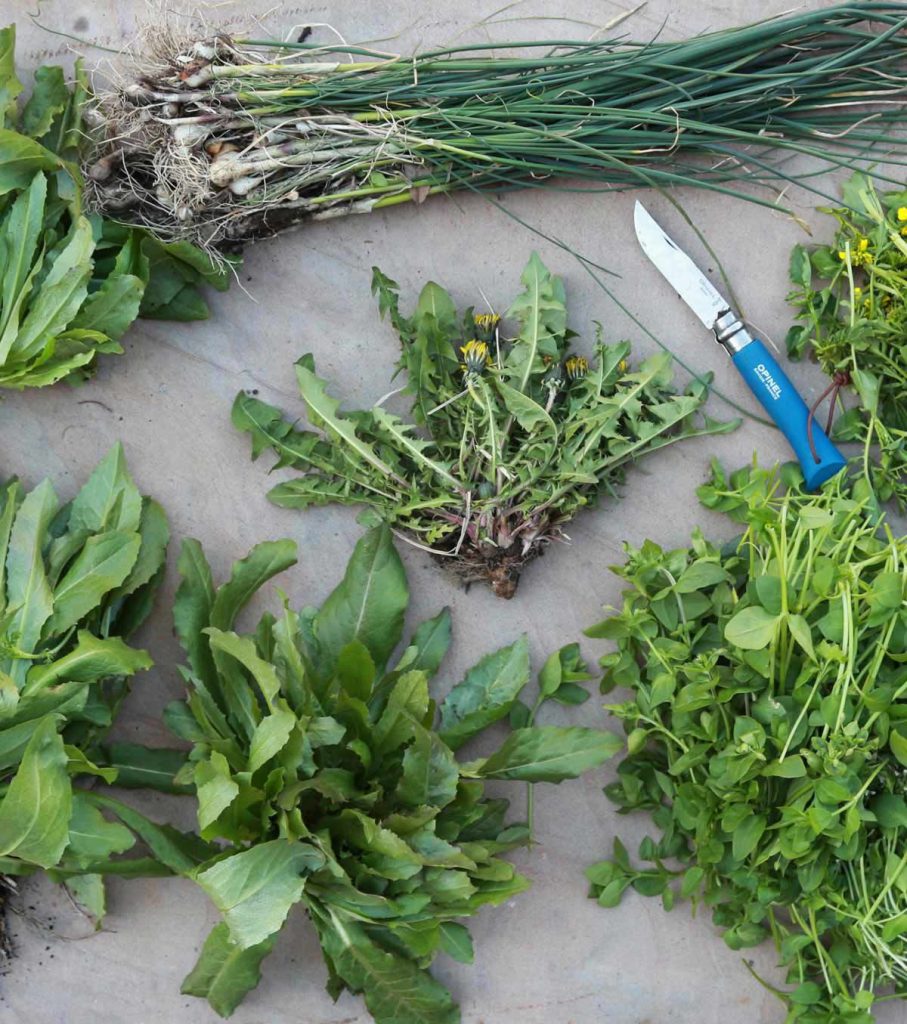Weeds are undesirable invasive plants in gardens. They take nutrients and moisture from desired crop plants. They hinder plant growth, quality and yield. They help spread plant diseases, and harbor and attract insects. Weeds can be the most difficult or the easiest of garden problems to control. The key factors in controlling them are planning and persistence. You need to Weed.
Experts say “the first step is to select a garden site that is relatively weed free.” Unfortunately that is something that is easier said than done, especially for Urban dwellers and suburbanites who are working within a very finite space to begin with. If possible., Try to avoid heavily weed infested areas.
To begin a vegetable garden on a site that is weed infested, spray the area with a nonselective weed killer such as roundup first. Roundup is Toxic to people and pets follow all precautions. It is also not Organic and not entirely eco-friendly, there are a number of organic and more environmentally sound methods of weed control covered further on in this article.
After all unwanted plants have been massacred, till the site turning all the soil so as to force turned-under weeds to decompose. A second tilling prior to planting will help to eliminate any next generation weeds. Herbicides such as preen may be helpful in preventing more weeds from germinating. While tilling, add the requisite fertilizer, and other soil amendments.
When planting, keep the plants in tightly spaced rows. This will allow the vegetables to crowd out weeds. When I say “tightly Spaced” -you should stay as close to parameters advised on the seed packet BUT plant several closely spaced rows while allowing for a walk way.
Mulching will also reduce weeds, but it is generally best to wait till later in the early season to mulch vegetables so soil temperature can rise for optimal growth.
- Remove any weeds prior to mulching, many weeds will emerge through a mulch layer entirely defeating the purpose. When Mulching be sure that the mulch covers the entire soil surface right up to the base of the plants.
- Get the weeds early, when they’re easier to control and haven’t seeded.
- Most vegetable garden crops will outgrow weeds. Providing the best conditions for your vegetable plants to grow will help to reduce weed populations.
- Continuous Cultivation and hand weeding for the life of your vegetable garden is crucial to continue garden weed control.
Organic and eco-friendly methods of weed control include
- Weeding by Hand
- Weeding with a hoe or similar tool
- Organic Herbicides
- Home Made concoctions
Commercial Organic herbicides generally only kill plants which get their foliage entirely coated,roots are not effected.
The most common Home made organic herbicide is vinegar which has an acetic acid concentration that isn’t strong enough to eliminate many stronger weeds. but which will kill young and emerging weeds. Multiple applications are necessary as the vinegar rapidly breaks down within the soil. [1]
A variation of straight household vinegar is a Vinegar, Salt and Soap solution.
- 4 cups of vinegar
- 1 cup of salt
- 1/2 teaspoon of liquid soap
Thoroughly mix the salt and vinegar together, avoid any clumping, then add the soap. Adding the soap first creates a bubble bath effect.
Limit the spray to only the weed, avoid nearby plants. This solution is nondiscriminatory and will kill good plants also.
Some Gardeners do not use the salt in this mix as it is not eco-friendly and will degrade the soil if used excessively.
[1] Reference: Healthy Child Healthy World
Article Source: http://EzineArticles.com/7667129

